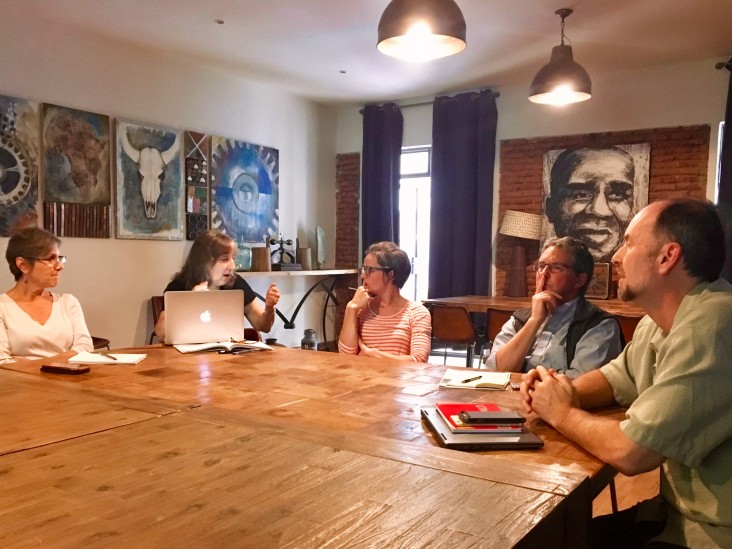Speeches Shim

Country Development Cooperation Strategy (CDCS) and Positive Youth Development - USAID/Malawi is a phase II CDCS country and is crafting a youth development objective to address a Malawian population where more than 60 percent of citizens are 24 or younger. On July 14th, Agency Youth Coordinator Mike McCabe and two youth experts from the Global Health Office - Linda Sussman and Laurette Cucuzza - traveled to Malawi to: a) consult with USAID/Malawi staff on challenging design aspects of a Youth DO, and b) deliver a two-day Positive Youth Development (PYD) training for key USAID/Malawi technical and implementing partner staff. Twenty-one participants completed the course and are now ready to employ USAID’s PYD methodology to their forthcoming work under the CDCS Youth DO. Mission Director Tazewell and the entire USAID/Malawi team are sincerely grateful for the expert advice on our CDCS process and the in-country training opportunity.
Malawi Lowers the Boom on Wildlife Criminals - In a recent series of events, Malawi has demonstrated that it is getting ever more serious about turning the tide on criminals who are devastating Malawi and Southern Africa’s wildlife populations. On Monday, July 15, Malawi’s Supreme Court overturned a previous judgement that fined wildlife criminals $5,500 for being complicit in the death of as many as 400 elephants, and instead imposed an eight-year prison sentence. In the months leading up to this ruling, the Malawi Police Service, with the support of the Department of National Parks and Wildlife, also made a number of high-profile arrests of both Chinese and Malawian wildlife traffickers, who will now be prosecuted under Malawi’s Wildlife Act of 2016. USAID supports Malawi through the Combating Wildlife Crime in the Malawi-Zambia Landscape Project activity managed by the International Fund for Animal Welfare (IFAW). The main implementing partner, IFAW, works in partnership with the Lilongwe Wildlife Trust (LWT), Wildlife Crime Prevention (WCP, Zambia) and IMANI.
Celebrating World Population Day with Youth Friendly Health Services - To mark World Population Day, USAID activity HP+ highlighted the degree to which youth will play a critical role in addressing population issues in Malawi and around the globe. Specifically, USAID is working to train and support youth champions who will use their understanding of sexual and reproductive health issues to inform their peers and advocate for youth friendly health services. USAID is also working with faith leaders, traditional authorities, and rural media outlets to get the word out on how sexual and reproductive health issues have a dramatic impact on the lives and futures of young people, communities, and ultimately Malawi’s own growth and development strategy.
USAID Apatseni Mwayi Atsikana Aphunzire (AMAA)/Let Girls Learn Project Goes Green - Teenage girls are undereducated in Malawi: Female students who complete primary school often leave the educational system due to early marriage, family work demands, limited classroom space, and unaffordable school fees. Starting in 2017, USAID/Malawi invested in construction of ten new secondary schools (with at least half of the 200 spaces per school reserved for girls), plus a 50-bed female dormitory and teacher housing. The AMAA project also included construction and rehabilitation of small-scale water and sanitation infrastructure to support schools.
By following the environmental compliance and safeguarding process, USAID identified environmental challenges involving construction source materials, such as sand and timber. The initial plan was for sand to be extracted from nearby streams at a rate that would significantly alter local riverine ecosystems. The planned use of timber for construction would also be unsustainable; in Malawi timber is often illegally obtained, contributing to forest degradation and deforestation. USAID also realized that construction of the schools would displace local inhabitants or affect their livelihood—for example, by removing farmers from their agricultural plots.
To overcome these adverse impacts, USAID and the implementing partner conducted field visits and met with local leaders, community members, and Malawian government officials to identify shared solutions. Stakeholders agreed that the best way to mitigate the environmental impacts was to pursue alternative construction materials. The preferred approach was to use prefabricated materials, such as improved soil stabilizing blocks and cement concrete blocks. Another approach was to prioritize sourcing of sand from inland sand pits—away from streams and ecologically sensitive areas. Where sand was extracted from waterways, USAID required the construction team to hire a riverine ecosystem specialist and obtain permits from the Department of Mines. In addition, USAID required any purchased timber to have been originally felled with appropriate licenses provided by the Malawian government. To address the social challenges, USAID worked with community members to ensure that reasonable “in-kind” (i.e., new land) replacement was provided to people affected by the project and codified their rights in land tenure agreements written in the local language.
By working with the community, USAID was able to identify workable solutions that enabled successful completion of the schools without long-term negative environmental impacts that could have harmed the surrounding communities. With the successful outcome of this project, construction has begun on over 200 new schools—with at least half the spaces saved for girls—in all 28 districts in Malawi.

Comment
Make a general inquiry or suggest an improvement.